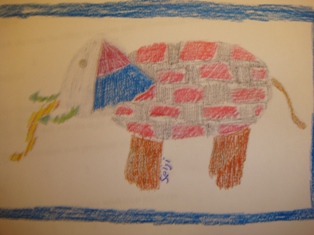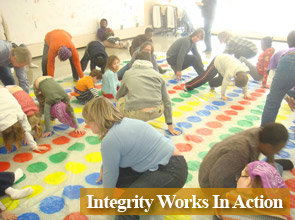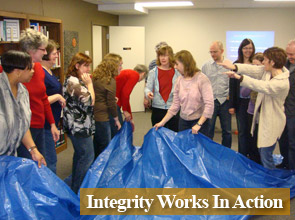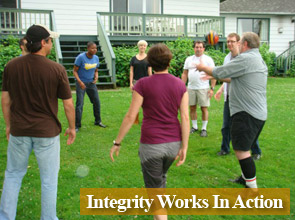It seems that the whole world knows by now about Hillary Adams, the 23 year old woman who posted a seven minute video on Youtube of her father violently and repeatedly beating her on her legs and bottom with a belt when she was 16. What made the matter especially salacious is that her father is a Family Court judge. Within days the video had been watched by millions.
For the most part, viewers were outraged, and they called for the head of the judge. The judge was a monster. The judge should lose his job as he clearly couldn’t be trusted to preside over abuse issues. Hillary was an abuse victim. She became a celebrity, a spokesperson for abused children and women. She and her mother, (also seen striking her in the video and telling her to “take it like a woman”), were hosted on numerous talk shows. Parenting and relationship experts tripped over themselves in their rush to condemn the abuser and support the victim. These experts sagely spoke out against violent behaviour and talked about all forms of physical parental discipline as being wrong. One Family Court judge went so far as to say that if a parent had to hit a child, it should just be a “tap”. And who could argue with any of them, violence is wrong, right? Victims should be protected and abusers should be punished, right? And no doubt, the images and sounds of the video were shocking and hard to witness. Clearly the father had crossed the line with his daughter. Clearly he had been violent.
So it might be a surprise that when interviewed on the Billy Kelly Show that some of my outrage was directed, not towards the father, but towards the rush to judgment. While acknowledging that what the judge did was wrong, I pointed out that there is not a single one of us, including me, that doesn’t have 7 minute moments in our lives, that if posted on Youtube, would lead the world to immediately believe that we were not suited to be parents, partners, or, in my case, a Family Therapist. In assessing the daughter’s behaviour, I felt that her stated reason (to help her father) for posting the video seemed false and that the chosen avenue for bringing the matter forward was offensive and unfair. I even went so far as to suggest that perhaps if she had put as much time, thought, and effort into not lying, stealing, and defying her dad as she did in planning the video set-up, the beating might not have happened. Predictably listeners were outraged at me, and accused me of blaming the victim for the behaviour of the abuser, even though I had said that I believed they were both responsible for their own actions. I was very clear in my interview that I did not excuse the behaviour of the judge. I thought that what he did was wrong, but that I was not going to judge him based on a 7 minute Youtube video.
I was, and remain, mostly outraged at the hypocrisy and cowardliness of our society, and the gutless pandering of the media who failed to ask significant questions because they knew that doing so would make them unpopular. You see when this kind of news occurs, there’s a rush to establish who The Victim is, and who The Abuser is. Once that’s been established, no-one better dare to ask any questions or call into question any of the behaviour of The Victim. Everything The Victim did prior to the event is explained by the actions of The Abuser-after all, she had to cope with his abusive actions. Every action of The Victim after the event is acceptable because she is, after all, just dealing with having been abused and she deserves any attention, support, and reward (book deal?) she can get. Any behaviour that is suspect is explained away as having been caused by The Abuser. Conversely, any good that The Abuser has done prior to the event, or after it, is irrelevant. In this case, it doesn’t matter what kind of parent he was before or after, or what he has done for his community. What matters is that he is The Abuser. He is a monster. And if anyone has the temerity to ask about extenuating circumstances and the context of the event, they are quickly shouted down. Exploring extenuating circumstances is equated to justification and minimization of abuse and siding against The Victim. As one caller said after my interview, “This is why victims struggle with coming forward, they get blamed for the abuse!”
Well, I don’t get shouted down very easily, and unlike so many of my colleagues, I am not afraid of going where we are forbidden to go. I happen to believe that extenuating circumstances and contexts of events do matter if we seek anything beyond immediate violent retribution. There is a world of difference between a parent who, out of character, hits a chronically defiant disobedient child with a belt as an extreme measure to deal with extreme behaviour after repeated warnings and attempts to discipline otherwise, and a parent who frequently and randomly hits a child for no reason other than being in a bad mood or drunk. Bear in mind that this does not mean I am in favour of hitting people with belts, nor can I know from Youtube which category the judge falls under, but I can tell you that I have seen many abused people who have talked about the impact of the randomness of abuse. How as a child it didn’t matter how they behaved; there was absolutely no connection between their behaviour and the pain that was administered to them. The difference between possibly well-intended corrective punishment, no matter whether you agree with it or not, and random brutality is extreme.
I wonder how many of the people calling for the judge’s head are also people whose mom or dad, on very rare occasions, when they had crossed an extreme line, had taken a belt or spoon to their behinds? Many have smilingly told me these stories, proudly describing loving parents with no hint of an accusation of abuse. But if a video of those occasions had been posted online, would they have been comfortable with their mother or father being demonized? Would they be okay with their parents losing custody and losing their jobs? The hypocrisy astounds me. And how about those people who you’ve heard mutter about “kids now-a-days” who have no respect and how “if I had tried that my mom would have busted a spoon over my..!” Where are their voices now? These stories are told by adult children with a respect for their parents who took those measures, and as part of an argument that kids are out of line these days because they don’t fear and respect parents. Right or wrong, we can’t have a discussion about this as long as there are areas of discussion to which we simply must not go.
And the media, who fanned the flames of hysteria with headlines such as “Judge beats disabled daughter!” Never mind that the daughter had a form of cerebral palsy unrelated to her justification of why she did not obey her father when he told her to stop pirating videos: “My disability led me to have a fascination with technology.” Never mind that this disabled victim had a website called “retardedcustomers.com” which she used to insult the customers of the video store she worked in and which mysteriously went off line while she was launching her victim tour. Never mind that she held on to the video for seven years and only released it when her father took her Mercedes from her and told her it was time for her to support herself. Never mind that she seems to have a twisted partnership with a mother who may have chronically undermined her husband’s parenting and attempts to set and enforce limits, and who just happens to now be in a custody battle with him over their 10 year old daughter. Never mind that in the video of her dad hitting her, she continued to defy her father while obeying her mother, possibly to ensure that the film evidence against him be as dramatic and as bad as possible, and that as soon as her parents left the room, her crying stopped and her first thought was to jump dry eyed from her bed to turn off the video recorder. Never mind that she did not release the video to a child protection agency or another social services organization as someone would have done if they truly wanted their father to get help, as she claimed, and she wanted to protect her little sister. None of these questions were pursued because of the backlash that would follow. I imagined every interviewer acutely aware of a flaming sword of destruction held over their head in the face of raging public opinion, and of course they caved. Who gives a damn about the truth, and investigative journalism? Sacrifice everything but the ratings, and lose the chance for any real dialogue about complex issues.
I have tons of outrage to spare for the sanctimonious experts who jumped on the victim bandwagon with both feet. Here was an opportunity for them to address the realities of what parents and children struggle with in real life situations. For example, here was their chance to talk about parents who are at their wits ends dealing with children who are openly defiant. Children who dare their parents to “do something about it” when their behaviour is called into question. Children who taunt their parents with the threat of calling Children’s Aid. Children who bully their parents by spitting on them, swearing at them, and hitting them. Children who lie and steal, who trash their parent’s homes, who refuse to go to school, refuse to go to work, refuse to clean up after themselves, refuse to stop taking drugs. These are the parents and children I see, and to not acknowledge that reality, to pretend that it’s not there, and to lump every parent who attempts to regain and assert authority through an extreme action, who may love their kids and are perhaps trying to do the right thing for them, in with every abuser is a slap in the face to those parents. And to lump those children in with every victim is an insult to survivors of abuse
Now I’m not saying that Hillary is not a victim, though I clearly have concerns about her behaviour and character. And I’m not saying that the father is not an abuser. His behaviour was abusive. But I object with all my morally outraged heart at the notion of Youtube justice. Trial by social networking! What next, are we to tweet in our verdicts? When these events occur, how about we sit back a little and withhold passing judgment, just as we would want for ourselves and our loved ones should we find ourselves and a fragment of our private lives exposed on-line.
And let’s not accept that there are places too sacred for questioning and discussion, and that we must fall in line with popular ideology or be deemed to be pro abuse and violence. Questioning and discussing this whole matter has led me to seriously call into question my own beliefs about what constitutes abuse, and whether extreme measures can ever be justified. I know that though I abhor violence and deeply value love, I have great capacity for both violence and love. Do I use my moral outrage at injustice as a way of justifying an outlet for violence? If I said I belted or spanked my child to correct him could I just be rationalizing my dark side? Can I ever be violent and abusive out of love? It horrifies me to think that any abuse (I think of the sickening sex abuse just now being revealed at Penn State) might then be justified by the abuser as an act of love. Where is the line? How can we know for sure if we are really doing something for a child as opposed to doing it for ourselves if we open the door to any violent behaviour? These are the issues I will continue to explore openly and honestly with my clients as they search for the right path for them. And I will do that because I know I am not better than they are and I am willing to be honest with myself, my flaws, and with my lack of ability to know what must be right. I will not oversimplify complex matters just so I can appear righteous. I will not pretend that I have cornered the market on what constitutes loving parenting. I accept my limitations, just as I believe that victims don’t just wear white hats and abusers don’t just wear black. Sometimes an abuser is a victim, and a victim is an abuser. Sometimes we wear gray. Let’s talk about that.













